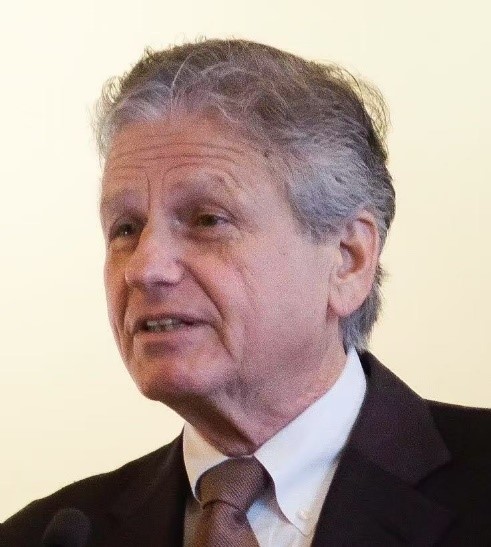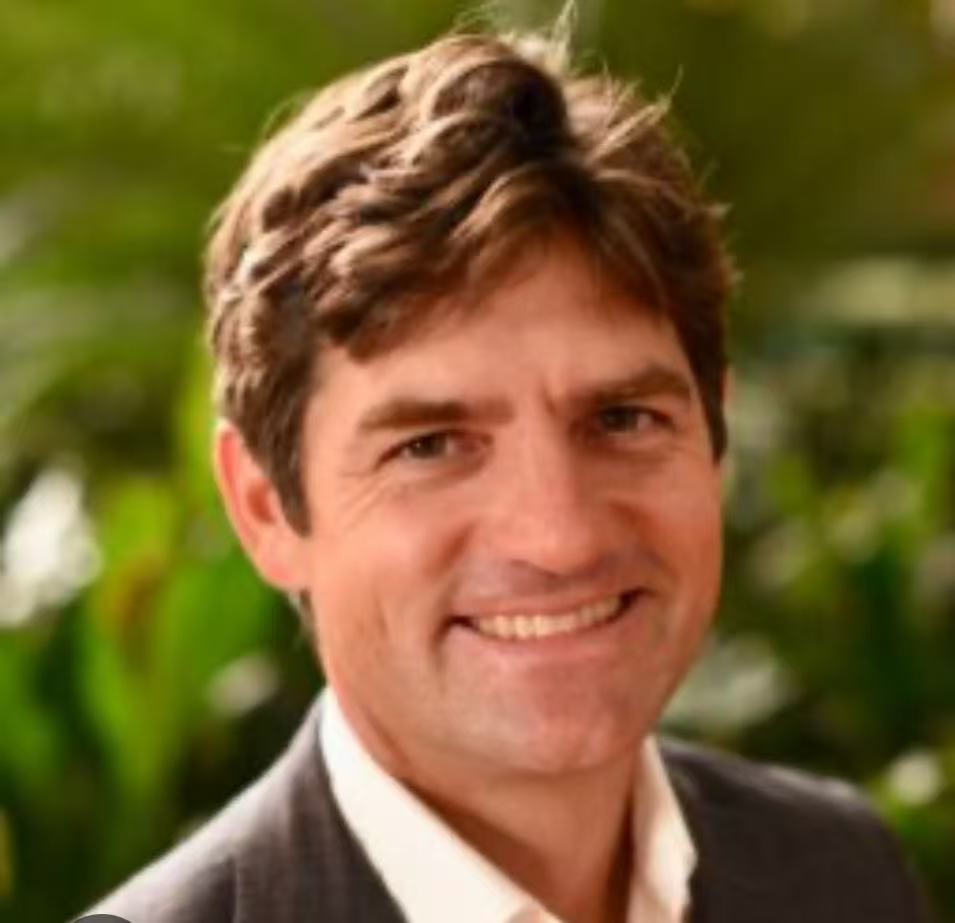
Prof. Tien Yin Wong, Tsinghua University, China
Prof Tien Wong completed medical school at the National University of Singapore (NUS), and obtained a MPH and PhD from Johns Hopkins University, USA. He completed residency clinical training in ophthalmology at the Singapore National Eye Centre, with retinal fellowships at the University of Wisconsin, Madison, USA and the University of Sydney, Australia. Prof Wong is a physician-scientist-leader, and an internationally renowned ophthalmologist and retinal specialist. Professor Tien Yin Wong is a physician-scientist-innovator who has made significant contribution to the development and application of artificial intelligence (AI) and digital technology in medicine and healthcare, particularly to the screening, detection and prevention of eye and systemic diseases. Over nearly three decades and working in four countries (Singapore, Australia, USA, China), Tien Wong led international, multi-disciplinary teams that combined classic epidemiological studies with data science, translational-implementation-clinical studies that applied the latest advances in AI, including machine learning (ML), deep learning (DL) and generative AI (gen AI). Tien Wong has published >1500 papers with a H-index of >220 (Google Scholar). He is Highly Cited Researcher (2018, 2020, 2021, 2022, 2023, 2024). He has published major papers in AI in the top journals, including New England Journal of Medicine, JAMA, Nature Medicine, Lancet Digital Health, Nature Biomedical Imaging. For his contribution and research on AI, Tien Wong has received Singapore’s President’s Science Award and President’s Science and Technology Award. He is an elected Fellow of the Singapore National Academy of Sciences, international (foreign) Member of U.S. National Academy of Medicine and international (corresponding) Fellow of the Australian Academy of Health and Medical Sciences.
Prof. Changsheng LIU, Shanghai University, China
Prof. Liu Changsheng, Academician of Chinese Academy of Sciences, has been engaged in the research of biomaterials for more than 30 years. He has developed a variety of bioactive regenerative materials and novel techniques for tissue repairing and regeneration. Under his leadership, his group has developed the artificial bones made of self-setting calcium phosphates, which was approved in clinic application. Currently, the products have been widely applied in orthopedics for bone injury. Moreover, by using genetic engineering techniques, recombinant human bone morphogenetic protein-2 (rhBMP-2) has been achieved in large-scale production, and rhBMP-2-loaded biomaterials with higher osteoinductive capacity were fabricated, promoting the repair of bone injuries. He raised new concept of materiobiology and guided frontier research of bioactive materials and creative clinic therapy. He published over 900 SCI articles such as Chemical Reviews, PNAS, Science Advances, Nature Communication, and 5 books. Because of excellent innovations and significant contributions, Dr. Liu has been awarded lots of honors including National Natural Science Award, National Science and Technology Progress Award, Ho Leung Ho Lee Foundation Innovation Award, Fellow of American Institute for Medical and Biological Engineering, Bioactive Materials Lifetime Achievement Award, etc.
Prof. Xiaohua Zhou,Peking University, China
Xiaohua Zhou, Distinguished Professor of the Overseas High-Level Talent Recruitment Programs (Innovative Long-term Project) of the Organization Department of the CPC Central Committee, Doctoral Supervisor, Chair of the Department of Biostatistics of Peking University, PKU Distinguished Chair Professor of Beijing International Center for Mathematical Research, Vice Dean of National Institute for Regulatory Science of Drug and Medical Device of Peking University, and Vice Dean of Peking University Chongqing Research Institute for Big Data. Chair of International Biometric Society - China, Chair of the Medical Mathematics Professional Committee of the Chinese Mathematical Society, Fellow of the American Association for the Advancement of Science (AAAS), Fellow of the American Statistical Association (ASA), Fellow of the Institute of Mathematical Statistics (IMS), etc. Professor Zhou is currently the associate editor of Statistics in Medicine, and the editor-in-chief of Biostatistics & Epidemiology, the official journal of IBS-China. He has published more than 280 SCI academic papers in top international statistical and biostatistical journals such as J. R. Statist. Soc. B, Journal of the American Statistical Association, Annals of Statistics, Biometrika, Biometrics, etc., of which more than 170 are the first or corresponding authors. Professor Zhou's research focuses on statistical methods in diagnostic medicine, design and statistical methods in randomized clinical trials, causal inference methods, mathematical and statistical modeling of the occurrence and development of major epidemics, etc.
Prof Joseph P. Vacanti,Massachusetts Gen Hospital,USA
Prof Joseph P. Vacanti received the medical degree with high distinction from the University of Nebraska College of Medicine, Omaha, in 1974, and the M.S. degree from Harvard University, Cambridge, MA.,He is currently the John Homans Professor in Surgery at Harvard Medical School, Boston, MA. in addition, he serves as Surgeon in Chief and Chief of Pediatric Surgery at the Massachusetts General Hospital for Children, Boston. He is a Cofounder and Editor of the journal Tissue Engineering. He has been working in the field of tissue engineering since its beginnings in the early 1980s—a mission that stems from his long-held interest in solving the problem of organ shortages. His approach to developing tissue involves a scaffold made of an artificial biodegradable polymer, seeding it with living cells, and bathing it in growth factors. The cells can come from living tissue or stem cells. The cells multiply, filling up the scaffold, and growing into a 3-D tissue. Once implanted in the body, the cells recreate their proper tissue functions, blood vessels grow into the new tissue, the scaffold melts away, and lab-grown tissue becomes indistinguishable from its surroundings.,Dr. Vacanti is a member of the American College of Surgeons, American Pediatric Surgical Association, American Society of Transplant Surgeons, and Tissue Engineering Society in addition to many others. He was recently the recipient of the Thomas Sheen Award, presented by the New Jersey Chapter of the American College of Surgeons, and the John Scott Award, which was presented by the city of Philadelphia. The John Scott Award is given to “the most deserving” men and women whose inventions have contributed in some outstanding way to the “comfort, welfare, and happiness” of mankind.
Prof YaNan Du, Tsinghua University, China
Prof Du YaNan: Professor and Vice dean in the School of Biomedical Engineering, Tsinghua University. PI in the Tsinghua-PKU Center of Life Science. His research focuses on developing Micro-engineered Cell-based Assays and Therapy Platform for drug screening, disease study and regenerative therapy.
Professor Teoh Swee Hin, Hunan University, China
Prof Teoh is the Founding Director and Distinguished Changjiang Chair Professor, Center for Advanced Medical Engineering (CAME) at the College of Materials Science and Engineering, Hunan University, China. He majored in Materials Engineering (B Eng with First Class Honors and PhD at Monash University in 1978 and 1982 respectively). He is a Fellow of the Institution of Engineers, Singapore.
Prof Teoh spent 30 yrs (1982-2012) at the National University of Singapore (NUS) and Co-Chaired the Graduate Program in BioEngineering (GPBE). He also Chaired the School of Chemical and Biomedical Engineering (SCBE) with a joint Professorship at the Lee Kong Chian School of Medicine (LKC Med) at Nanyang Technological University (NTU), from 2012-2021. He was awarded the prestigious NTU President's Chair Award for Educational Leadership and for his outstanding research. He is also the Senior Mentor to the clinical scientists at the National Dental Centre of Singapore for the last 10 years. He is committed to using knowledge to benefit society. He is known for excellence in teaching, research and entrepreneurship. Professor Teoh is a global leader and pioneer in the use of 3D printing technology to manufacture clinical scaffolds for bone tissue engineering. To date, his MedTech company Osteopore Internationals has implanted more than 60,000 scaffolds worldwide. The company has been successfully listed in 2019 (ASX-Australia). His pioneering work on 3D printed scaffolding has earned him the prestigious "Golden Innovation Award" from the Far Eastern Economic Review and the "Notable Engineering Achievement Award" from the Institute of Engineers, Singapore. As part of the SG50 celebrations, he was listed as one of Singapore's leading scientists. His team also received the "2018 Patent Excellence Award" from the Intellectual Property Office of Singapore. Currently, he is focusing on biomaterials, piezoelectric bone tissue engineering and regenerative medicine with research ranging from synthetic bones, blood vessels and skin, to biomimetic bioreactors, to fish collagen, decellularized organs and effect of electromagnetic field on cells. He hopes to eventually translate them into the clinic. With more than 37 Ph.D. graduates, 270 research publications, and 22 patents and technical disclosures, Professor Teoh is a pioneer and outstanding educator with numerous teaching awards in materials science and engineering, bioengineering and translational tissue engineering and regenerative medicine.
Prof. Hanry Yu, National University of Singapore, Singapore
Hanry Yu is Professor of Physiology (NUSMed), NUS-College, and Mechanobiology (MBI) at the National University of Singapore; and co-leads a cell therapy manufacturing programme (CAMP) at the MIT research entity (SMART) in Singapore. He integrates biomaterials, tissue mechanobiology and engineering, biomedical optics and AI data analytics into solutions for pharmaceutical, environmental, and recently food industries. He has trained many students and staffs in leading universities in the US and Asia; built several institutions and companies, published >250 papers, delivered >250 invited talks, and consulted for international organisations and agencies.
Dr Michael Wagel,Princess Alexandra Hospital,Australia
Dr Michael Wagel is a Staff Specialist Plastic and Reconstructive surgeon at the Princess Alexandra Hospital. He undertook surgical training in Adelaide, Brisbane and Perth and was awarded FRACS in plastic and reconstructive surgery in 2012. Michael interrupted training to undertake research and was awarded a PhD from the University of Queensland in 2013. His Research Higher Degree thesis evaluated the behaviour of auto-transplanted muscle to prevent late failures from re-exploration. He also completed a fellowship in hand surgery at St Vincent’s Hospital in Melbourne in 2013-14.Michael hold the Academic title of Senior Lecturer at the University of Queensland. He believes the benefits of academic, commercial and clinical collaborations for patients with complex needs. He is the Director of two hospital departments responsible for the manufacture of medical devices at the point of care; the Australian Centre for Complex Integrated Surgical Solutions (ACCISS) and the Herston Biofabrication Institute (HBI). He has undertaken several first in human and subsequent clinical trials investigating bioresorbable 3D printed implants for applications in peripheral nerve, soft tissue and bone regeneration.








Contact
- Phone: 021-67792653
- xmm@dhu.edu.cn
Copyright 2024-2025 I-CAME 2025 Reserved. 沪ICP备19039466号-2